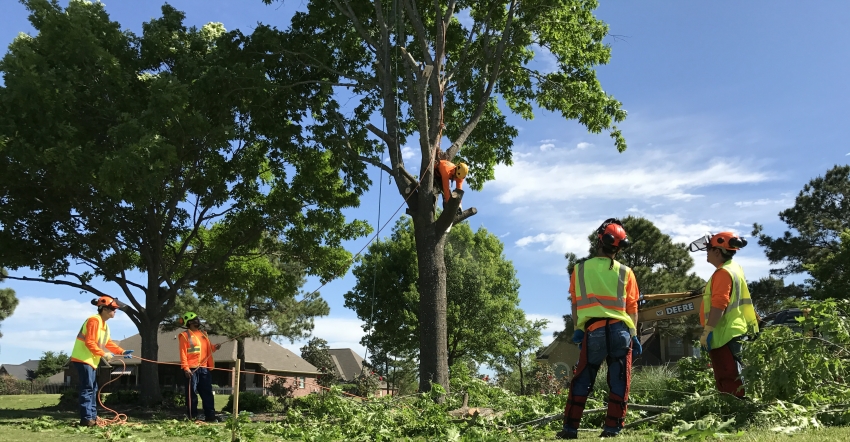“Confronting the darkness: Uniting against far-right extremism and hate crimes.”
The rise of far-right extremism and hate crimes is a concerning global phenomenon that has gained significant attention in recent years. This troubling trend involves the growth of extremist ideologies rooted in xenophobia, racism, and intolerance, leading to acts of violence and discrimination against marginalized communities. The increasing prevalence of far-right extremism and hate crimes poses significant challenges to societies worldwide, necessitating a comprehensive understanding of its causes, impacts, and effective strategies to counteract this dangerous trend.
The Impact of Far-Right Extremism on Society
The rise of far-right extremism and hate crimes has had a profound impact on society. As these ideologies gain traction, they not only threaten the safety and well-being of marginalized communities but also erode the very fabric of our democratic societies. It is crucial to understand the various ways in which far-right extremism affects society in order to effectively combat its harmful consequences.
One of the most significant impacts of far-right extremism is the increase in hate crimes. These crimes are motivated by prejudice and discrimination, targeting individuals based on their race, religion, sexual orientation, or other protected characteristics. Hate crimes not only cause physical harm but also instill fear and anxiety within targeted communities. They create a climate of intolerance and division, undermining social cohesion and trust.
Moreover, far-right extremism has a detrimental effect on the mental health and well-being of individuals and communities. The constant threat of violence and discrimination can lead to increased stress, anxiety, and depression among marginalized groups. This can further exacerbate existing inequalities and hinder social progress. It is essential to provide support and resources to those affected by far-right extremism to ensure their well-being and resilience.
Far-right extremism also poses a significant challenge to democratic values and institutions. These ideologies often promote authoritarianism, nationalism, and the exclusion of certain groups from political participation. By undermining the principles of equality, diversity, and inclusivity, far-right extremism weakens the foundations of democracy. It is crucial to safeguard democratic institutions and promote civic education to counter the influence of these extremist ideologies.
Furthermore, the rise of far-right extremism has led to a polarization of society. It creates an “us versus them” mentality, pitting different groups against each other. This polarization hampers constructive dialogue and cooperation, making it difficult to address pressing social issues. Bridging these divides requires fostering empathy, understanding, and promoting inclusive narratives that emphasize shared values and common goals.
The impact of far-right extremism is not limited to individual acts of violence or discrimination. It also has economic consequences. Hate crimes and extremist ideologies can deter investment, tourism, and economic growth. Businesses may be reluctant to operate in areas with a reputation for intolerance and discrimination. This can lead to a decline in job opportunities and economic prosperity, further exacerbating social inequalities.
To effectively address the impact of far-right extremism on society, a multi-faceted approach is necessary. Education plays a crucial role in preventing the spread of extremist ideologies. By promoting critical thinking, media literacy, and tolerance, we can equip individuals with the tools to challenge hateful narratives and build resilient communities.
Law enforcement agencies also have a vital role to play in combating far-right extremism. They must be adequately trained to identify and respond to hate crimes effectively. Collaboration between law enforcement, community organizations, and social services is essential to provide support to victims and prevent further radicalization.
Additionally, fostering inclusive and diverse societies is crucial in countering far-right extremism. By promoting equal opportunities, celebrating diversity, and ensuring representation, we can create environments that reject extremist ideologies and foster social cohesion.
In conclusion, the rise of far-right extremism and hate crimes has had a profound impact on society. It threatens the safety and well-being of marginalized communities, erodes democratic values, and hampers social progress. To effectively address these challenges, we must prioritize education, strengthen law enforcement efforts, and foster inclusive societies. By doing so, we can work towards a future where hate and extremism have no place in our societies.
Understanding the Factors Behind the Rise of Hate Crimes
The rise of far-right extremism and hate crimes is a troubling trend that has been observed in many parts of the world. Understanding the factors behind this rise is crucial in order to effectively address and combat this issue. There are several key factors that contribute to the increase in hate crimes, including political polarization, economic insecurity, and the spread of extremist ideologies.
One of the main factors behind the rise of hate crimes is political polarization. In recent years, there has been a growing divide between different political ideologies, with far-right groups gaining traction in many countries. This polarization creates an environment where extremist views are normalized and can easily spread. The rise of populist leaders who espouse divisive rhetoric further exacerbates this issue, as they often target marginalized groups and fuel hatred and discrimination.
Economic insecurity is another significant factor that contributes to the rise of hate crimes. In times of economic uncertainty, people often look for someone to blame for their hardships. Far-right groups exploit this fear and frustration by scapegoating minority communities, blaming them for job losses and economic decline. This creates a fertile ground for hate crimes to occur, as individuals who are already feeling vulnerable and marginalized may be more likely to act out their frustrations through violence or discrimination.
The spread of extremist ideologies is also a key factor in the rise of hate crimes. With the advent of the internet and social media, extremist groups have found new platforms to disseminate their hateful ideologies and recruit new members. Online echo chambers and radicalization networks provide a sense of belonging and validation for individuals who may feel isolated or disenfranchised. These platforms also allow for the rapid spread of misinformation and conspiracy theories, which can further fuel hatred and intolerance.
Furthermore, the normalization of hate speech in public discourse contributes to the rise of hate crimes. When political leaders and public figures engage in inflammatory rhetoric or fail to condemn hate speech, it sends a message that such behavior is acceptable. This can embolden individuals who hold extremist views and may lead to an increase in hate crimes. It is essential for leaders to take a strong stance against hate speech and promote inclusivity and tolerance in order to counteract this trend.
In conclusion, understanding the factors behind the rise of hate crimes is crucial in order to effectively address and combat this issue. Political polarization, economic insecurity, the spread of extremist ideologies, and the normalization of hate speech all contribute to the increase in hate crimes. By addressing these underlying factors and promoting inclusivity and tolerance, we can work towards creating a society that is free from hate and discrimination. It is imperative that governments, communities, and individuals come together to challenge and dismantle the structures that perpetuate far-right extremism and hate crimes. Only through collective action can we hope to create a safer and more inclusive world for all.
Strategies to Combat Far-Right Extremism and Hate Crimes
Strategies to Combat Far-Right Extremism and Hate Crimes
In recent years, the rise of far-right extremism and hate crimes has become a growing concern for societies around the world. These acts of violence and discrimination are fueled by ideologies that promote hatred, intolerance, and the exclusion of certain groups based on their race, religion, or nationality. To address this alarming trend, governments, organizations, and communities have been implementing various strategies to combat far-right extremism and hate crimes.
One of the most effective strategies is education. By promoting tolerance, diversity, and inclusivity from an early age, societies can prevent the spread of extremist ideologies. Schools play a crucial role in this process, as they can incorporate lessons on human rights, empathy, and critical thinking into their curriculum. By teaching students about the dangers of hate and the importance of respecting others, educators can help shape a generation that rejects far-right extremism.
Another important strategy is community engagement. Building strong relationships between different communities fosters understanding and reduces the likelihood of hate crimes. Community leaders, religious figures, and local organizations can organize events that promote dialogue, cultural exchange, and cooperation. By bringing people together, these initiatives create opportunities for individuals to learn from one another and challenge their preconceived notions. Moreover, they provide a platform for marginalized groups to voice their concerns and experiences, empowering them to stand up against hate.
Law enforcement agencies also play a crucial role in combating far-right extremism and hate crimes. They must be adequately trained to identify and respond to these threats effectively. Specialized units can be established to investigate hate crimes and monitor extremist groups. Additionally, partnerships between law enforcement agencies and community organizations can be formed to enhance trust and cooperation. This collaboration ensures that victims of hate crimes feel safe reporting incidents and that perpetrators are held accountable for their actions.
Furthermore, governments can implement legislation that specifically targets hate crimes and far-right extremism. Laws should be enacted to criminalize hate speech, incitement to violence, and the dissemination of extremist ideologies. These laws should be enforced rigorously, sending a clear message that such behavior will not be tolerated. Additionally, governments can allocate resources to support programs that rehabilitate individuals who have been radicalized by far-right ideologies. By providing counseling, education, and job training, these programs offer an alternative path for individuals seeking to leave extremist groups.
International cooperation is also essential in combating far-right extremism and hate crimes. Governments and organizations must work together to share information, best practices, and resources. By collaborating on intelligence gathering and analysis, countries can identify and disrupt transnational extremist networks. Moreover, international organizations can provide support to countries that lack the resources or expertise to effectively combat these threats on their own.
In conclusion, the rise of far-right extremism and hate crimes is a pressing issue that requires a multifaceted approach. Education, community engagement, law enforcement, legislation, and international cooperation are all crucial strategies in combating this problem. By implementing these strategies, societies can create an environment that rejects hate and embraces diversity, ensuring a safer and more inclusive future for all.In conclusion, the rise of far-right extremism and hate crimes is a concerning trend that poses significant threats to societies worldwide. The increasing visibility and influence of far-right ideologies have contributed to a surge in hate crimes targeting marginalized communities. It is crucial for governments, law enforcement agencies, and civil society to address this issue through proactive measures such as education, legislation, and community engagement to promote tolerance, inclusivity, and social cohesion.




